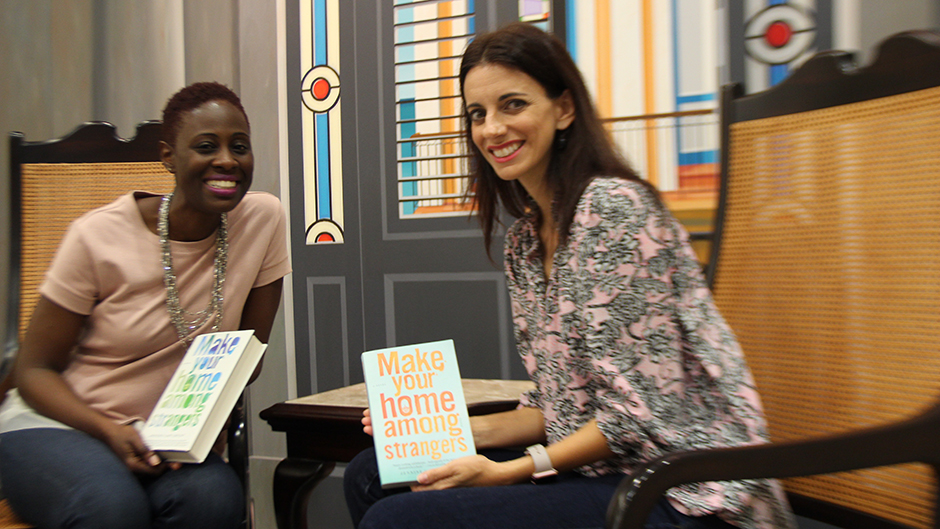The book, Jennine Capo Crucet’s debut novel, weaves a tale that is timely, truthful (though “imagined,” fiction is often closer to truth than what surrounds us on a daily basis), and sabrosisimamente “Miami.”
“’One Book, One U’ captures the idea of a community conversation,” said Chantel Acevedo, professor in the English Department’s Creative Writing MFA program and novelist herself. “Everywhere it seems that things are so divided, so polarized. While that’s not so true at the University—here there’s a sense of community—this book is about the Cuban-American and immigrant experience, and it’s about politics. It’s nice to think we’re all on the same page and willing to talk about it.”
Osamudia James, vice dean and professor in the School of Law, has been working in tandem with Acevedo to develop a constellation of transdisciplinary events related to the book that will take place around campus in the winter/spring. “This book is a perfect pick,” she said, “it reflects so much about Miami and about the University.”
Through the protagonist, “all the issues of first-year stress, and immigrant transition and mobility, and under-served communities collide,” James said. “It’s the sort of thing that helps the U publicize and make clear what our values are, and to show some of the issues we’re interested in exploring.”
Winner of the “International Latino Book Award for Best Latino-themed Book 2016,” Making a Home Among Strangers tracks the travails and tribulations of Lizet, the daughter of Cuban immigrants who grows up in Hialeah and becomes the first in her family to graduate from high school. She leaves Miami—infuriating her parents—to attend an elite college in the Northeast. The transition leaves Lizet feeling like a foreigner and estranged from her family, spawning a new awareness of herself as a minority.
The common reading book initiative, “One Book, One U,” is supported by a SEEDS grant matched by the College of Arts & Sciences. Other financial sponsors include the English Department, the MFA program, the School of Law, and Women’s and Gender Studies.
Students at the U will be encouraged to read the book as part of their orientation experience. One hundred copies will be distributed for free, and author Capo Crucet is scheduled to visit March 20 for a book talk in the Shalala Student Center. Other related activities will serve to stimulate and expand the conversation about issues the book raises.
The School of Law has scheduled a panel discussion for first-generation law students and legal professionals on February 15. “Their experience follows the theme in the book: to be the first in your family to do something, the stress that causes, and the new ways it helps you to assess yourself,” explained vice dean James. “We want to highlight that in a professional context.”
The School of Education and Human Development plans to offer a special immigration-focused education course, the Department of Theatre Arts a play, the English Department a contemporary literature class, and the Federation of Cuban Students activities—all associated and geared to stimulate a campus-wide conversation about issues relating to “One Book, One U,” according to Acevedo.
In her novel, Capo Crucet also develops a fictionalized immigration debate that will conjure memories of the drama surrounding Elian Gonzalez, a boy who was rescued off the coast of Fort Lauderdale after his mother and others fleeing Cuba by boat drowned. Capo Crucet explained that the sub-story was her own attempt “to make peace in my head and heart” with the haunting memory of that international custody controversy that ended when the U.S. government returned Elian to his father in Cuba.
“More than 15 years after Elian was deported,” she writes, “we still have the same broken immigration system, and I wanted to show how that system impacts real families and real people, how that system is still hurting Americans every day.”

